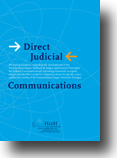On 19 December 2013, the Court of Justice of the European Union delivered its ruling in Corman-Collins SA v. La Maison du Whisky SA (case 9/12).
The main issue before the Court was whether an exclusive distribution agreement is a contract for the supply of services for the purpose of Article 5(1)(b) of the Brussels I Regulation.
The Court held that it is.
37 As to whether an exclusive distribution agreement may be classified as a contract for the ‘supply of services’ within the meaning of the second indent of Article 5(1)(b) of the Regulation, it must be recalled that, according to the definition given by the Court, the concept of ‘services’ within the meaning of that provision requires at least that the party who provides the service carries out a particular activity in return for remuneration (Case C-533/07 Falco Privatstiftung and Rabitsch [2009] ECR I-3327, paragraph 29).
38 As far as the first criterion in that definition, namely, the existence of an activity, it is clear from the case-law of the Court that it requires the performance of positive acts, rather than mere omissions (see, to that effect, Falco Privatstiftung and Rabitsch, paragraphs 29 to 31). That criterion corresponds, in the case of an exclusive distribution agreement, to the characteristic service provided by the distributor which, by distributing the grantor’s products, is involved in increasing their distribution. As a result of the supply guarantee it enjoys under the exclusive distribution agreement and, as the case may be, its involvement in the grantor’s commercial planning, in particular with respect to marketing operations, factors in respect of which the national court has jurisdiction to make a ruling, the distributor is able to offer clients services and benefits that a mere reseller cannot and thereby acquire, for the benefit of the grantor’s products, a larger share of the local market.
39 As to the second criterion, namely the remuneration paid as consideration for an activity, it must be stated that it is not to be understood strictly as the payment of a sum of money. Such a restriction is neither stipulated by the very general wording of the second indent of Article 5(1)(b) of the Regulation nor consistent with the objectives of proximity and standardisation, set out in paragraphs 30 to 32 of the present judgment, pursued by that provision.
40 In that connection, account must be taken of the fact that the distribution agreement is based on a selection of the distributor by the grantor. That selection, which is a characteristic element of that type of agreement, confers a competitive advantage on the distributor in that the latter has the sole right to sell the grantor’s products in a particular territory or, at least the very least, that a limited number of distributors enjoy that right. Moreover, the distribution agreement often provides assistance to the distributor regarding access to advertising, communicating know-how by means of training or yet even payment facilities. All those advantages, whose existence it is for the court adjudicating on the substantive action to ascertain, represent an economic value for the distributor that may be regarded as constituting remuneration.
41 It follows that a distribution agreement containing the typical obligations set out in paragraphs 27 and 28 above may be classified as a contract for the supply of services for the purpose of applying the rule of jurisdiction in the second indent of Article 5(1)(b) of the Regulation.
Final ruling:
1. Article 2 of Council Regulation (EC) No 44/2001 of 22 December 2000 on jurisdiction and the recognition and enforcement of judgments in civil and commercial matters must be interpreted as meaning that, where the defendant is domiciled in a Member State other than that in which the court seised is situated, it precludes the application of a national rule of jurisdiction such as that provided for in Article 4 of Law of 27 July 1961 on Unilateral Termination of Exclusive Distribution Agreements of Indefinite Duration, as amended by the Law of 13 April 1971 on Unilateral termination of distribution agreements.
2. Article 5(1)(b) of Regulation No 44/2001 must be interpreted as meaning that the rule of jurisdiction laid down in the second indent of that provision for disputes relating to contracts for the supply of services is applicable in the case of a legal action by which a plaintiff established in one Member State claims, against a defendant established in another Member State, rights arising from an exclusive distribution agreement, which requires the contract binding the parties to contain specific terms concerning the distribution by the distributor of goods sold by the grantor. It is for the national court to ascertain whether that is the case in the pbefore it.



